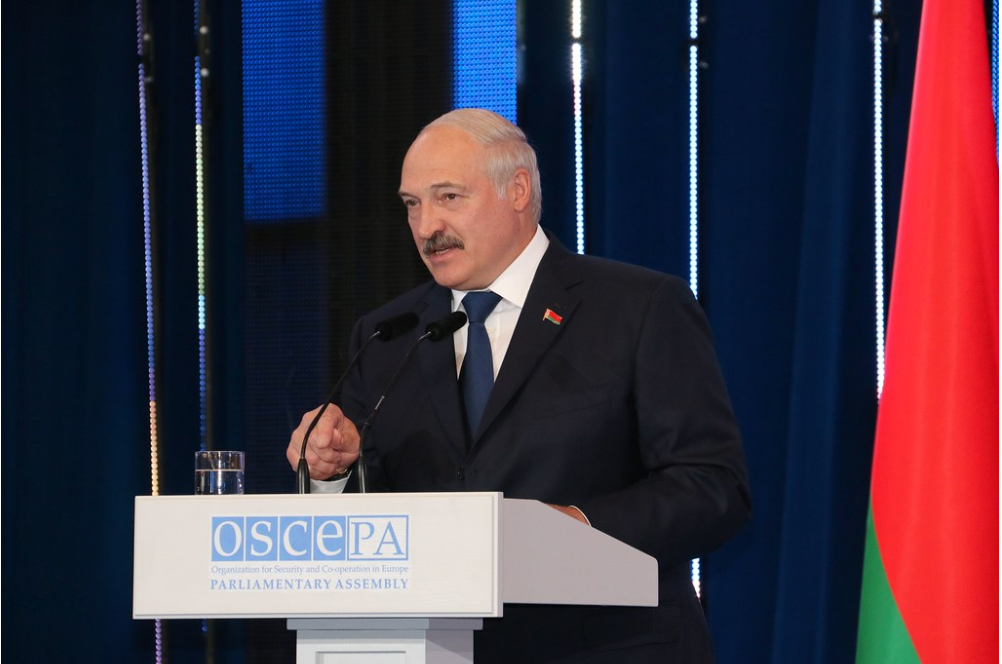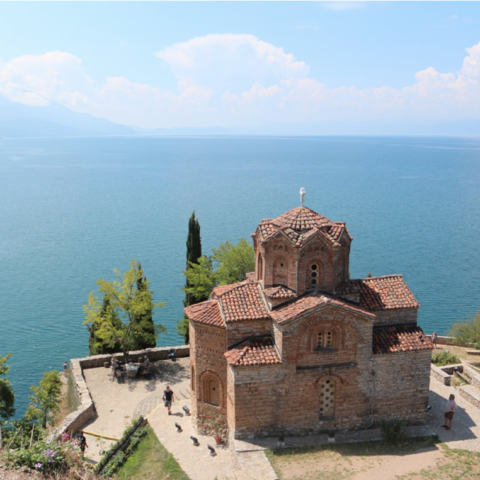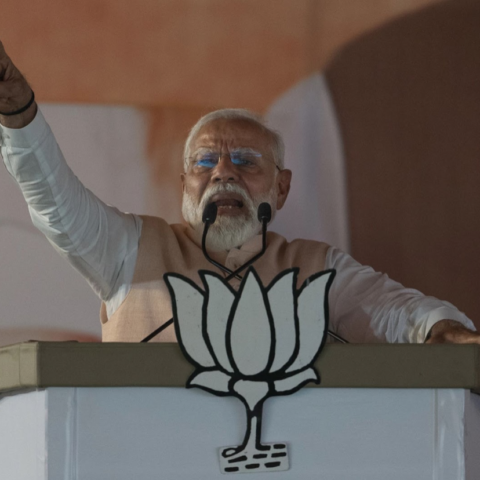By Lauren Thacker

On February 25th, Belarus conducted its first elections since 2020, leading to mass protests and a crackdown on public dissent. These elections allowed Belarusians to select local government and parliament representatives. Though the elections didn’t involve the election of a president this year, as they had in 2020, they highlighted the staunch reality of what future elections may look like in the state. For example, polls were opened five days before election day to allow for earlier voting, but boxes were unprotected, a move which many claim allowed for the manipulation of results. Additionally, only candidates in parties with approval from the government were allowed to register for the election. In fact, only four parties actually had their candidates listed on the ballot, meaning Belarusians had no real choice of opposition. Instead, they were forced to continue supporting one man: President Alexander Lukashenko.
Often called “Europe’s last dictator,” Lukashenko has been in power since 1994. A former director of a Soviet collective farm, he rose to prominence as a populist leader, marketing himself as a father of Belarus. In order to stay in power, he has resorted to rigging elections. During this year’s election season, he announced his intent to run for reelection in 2025, marking his first time on the ballot since 2020’s domestic conflict. This year’s parliamentary election was seen as a practice run for Lukashenko’s own race next year, suggesting a continued suppression of opposition candidates and poll boxes vulnerable to manipulation. However, though many Belarusians were frustrated with how it was conducted, this election did not prompt the same domestic outrage seen in 2020.
The 2020 election led to a domestic crisis in Belarus, with mass protests amounting to upwards of 100,000 people in the capital city of Minsk. In the weeks leading up to the election, Svetlana Tikhanovskay, the lead opposition candidate, traveled the country to garner support among those frustrated with the government. She did this in the absence of her husband, who was set to run, as he was jailed prior to the election. As voters took to the polls, an internet blackout took place. Exit polls, produced by the government, appeared to match the official results, declaring Lukashenko the winner. However, Tikhanovskaya and the opposition claimed that when results were properly documented, she received 60 to 70 percent of the vote. Taking to the streets, thousands demanded democratic leadership and economic reform in the country. In response, the government cracked down on domestic dissent, jailing many on the street and using force.
On March 15th, the United Nations Human Rights Office of the High Commissioner published its report analyzing the 2020 response to the 2020 election. The report found that the actions taken in Belarus could possibly constitute the crime against humanity of prosecution. In its 23 pages, the report highlights a complete lack of due process protections for those accused, citing a difficulty accessing lawyers and unnecessary delays in trial. Those arrested during protest were also subjected to torture, sexual violence, and inhumane methods of interrogation and detention. Additionally, many arrests were made arbitrarily, with evidence falsified. It is in the background of this that the elections of 2025 will take place, and this is concerning to many Belarusians.
Alisa Scherbakova, a current doctoral candidate at the University of Georgia and citizen of Belarus, left the country in 2016 and has been living in the United States since. She began protesting with her family when she was seven, and continued to do so until she left. In conversation, she expressed many concerns about the future of Belarus, highlighting the sense of despair many Belarusians feel towards the future of their nation. When asked if Belarusians were discouraged from participating by the government’s response, Scherbakova explained that “it can’t get worse than it already is.” She does not believe that people will protest in the upcoming election, citing a sense of hopelessness to make any meaningful changes. With Lukashenko set to run again, the elections of 2025 are certain to be held under a strict lockdown. For Russia, this secures continued support from a reliable ally, which has been helpful throughout the war on Ukraine. While Lukashenko will likely maintain his hold on the presidential office, there may be a way forward for Belarus if they choose to become more democratic. The European Union has pledged 3 billion dollars towards helping ensure a democratic transition in Belarus, if change is enacted. However, as Scherbakova sees it, Belarus has pushed out an entire generation of young people, who leave to ensure their children have better futures. To her, it is hard to imagine Belarus changing, when those passionately supporting the opposition leave and dissent continues to be suppressed.
Photo Credit: https://www.flickr.com/photos/oscepa/34931909983

